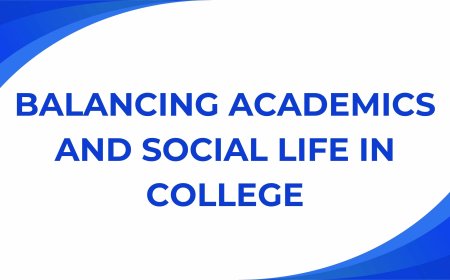The Academic Support Revolution: How BSN Writing Services Reshape Nursing Student Success
The Academic Support Revolution: How BSN Writing Services Reshape Nursing Student Success

The Academic Support Revolution: How BSN Writing Services Reshape Nursing Student Success
The pursuit of a Bachelor of Science in Nursing degree represents one of theBSN Writing Servicesmost academically rigorous and professionally demanding educational pathways in higher education. As healthcare systems become increasingly complex and evidence-driven, BSN programs have intensified their academic requirements, particularly in written communication and scholarly research. This educational evolution has catalyzed the emergence of specialized writing services that specifically cater to nursing students, fundamentally transforming how aspiring nurses navigate their academic challenges and prepare for professional excellence.
The Academic Intensity of Modern BSN Programs
Contemporary BSN programs reflect the sophisticated nature of modern nursing practice through their comprehensive academic requirements. Students must demonstrate mastery across multiple domains simultaneously: clinical competencies, theoretical knowledge, research literacy, and professional communication skills. This multifaceted approach ensures graduates are prepared for the complex realities of contemporary healthcare delivery.
The academic workload in BSN programs has expanded significantly over recent decades. Students typically complete between 120-130 credit hours, including extensive clinical rotations that can span 12-16 hours per day. Within this demanding schedule, students must also complete numerous writing assignments that require deep analytical thinking, extensive research, and professional-level communication skills.
Faculty expectations have similarly evolved to reflect professional standards. Professors increasingly expect students to produce work that meets publication-quality standards, incorporating current research, demonstrating critical thinking, and adhering to strict professional formatting requirements. These elevated expectations prepare students for careers where written communication directly impacts patient outcomes and professional credibility.
Understanding the Unique Writing Challenges in Nursing Education
Nursing writing differs substantially from other academic disciplines due to itsNursing Assignments Onlineintegration of scientific rigor with humanistic care perspectives. Students must learn to balance empirical evidence with compassionate care philosophies, creating a unique writing style that honors both analytical precision and empathetic understanding.
The vocabulary and terminology requirements in nursing writing present particular challenges. Students must master thousands of medical terms, drug names, diagnostic procedures, and treatment protocols while maintaining clear, accessible communication. This specialized language must be used accurately and appropriately across various assignment types, from research papers to patient education materials.
Ethical considerations add another layer of complexity to nursing writing assignments. Students must navigate patient confidentiality requirements, professional boundary maintenance, and ethical decision-making frameworks while completing academic work. These considerations require careful attention to detail and sophisticated understanding of professional standards.
The Emergence of Specialized Academic Support
BSN writing services have developed in response to these unique challenges, offering targeted support that addresses the specific needs of nursing students. These services recognize that generic academic writing assistance often falls short of meeting the specialized requirements of nursing education.
Professional writing support in nursing education typically involves mentors and tutors with advanced nursing degrees and clinical experience. This expertise ensures that assistance provided aligns with professional standards and current healthcare practices. Students benefit from guidance that reflects real-world application rather than purely academic theory.
The personalized nature of effective BSN writing services sets them apart from mass-market academic assistance. Services typically conduct individual assessments to identify specific student needs, learning styles, and academic goals. This customizednurs fpx 4000 assessment 1approach ensures that support strategies align with individual student circumstances and program requirements.
Comprehensive Service Offerings and Student Benefits
Research assistance represents a cornerstone of BSN writing services, given the emphasis on evidence-based practice in modern nursing. Students receive guidance on literature search strategies, database navigation, source evaluation, and research synthesis. These skills prove invaluable throughout nursing careers as professionals must continuously update their knowledge based on current research.
Writing skill development focuses on the specific requirements of nursing communication. Students learn to write with clarity and precision while maintaining professional tone and adhering to discipline-specific formatting requirements. This training extends beyond assignment completion to develop transferable skills for professional practice.
Time management coaching addresses one of the most significant challenges facing BSN students. Writing services often provide strategies for balancing clinical requirements with academic deadlines, helping students develop systems for managing multiple priorities effectively. These organizational skills contribute to success throughout nursing careers.
Stress reduction and confidence building emerge as unexpected but valuable benefits of quality writing support. Students who struggle with academic writing often experience anxiety that impacts their overall academic performance. Professional support helps build confidence while reducing stress associated with writing assignments.
Technology Integration and Modern Learning Approaches
Digital platforms have revolutionized how BSN writing services delivernurs fpx 4005 assessment 1support to students. Cloud-based systems enable seamless collaboration between students and mentors, allowing for real-time feedback and continuous communication throughout the writing process. These platforms accommodate the irregular schedules common in nursing education.
Video conferencing technology has expanded access to specialized writing support regardless of geographic location. Students in rural areas or those completing online BSN programs can access the same quality of support as their urban counterparts. This democratization of access has significantly impacted student success rates across diverse populations.
Mobile applications and responsive web design ensure that students can access writing support during clinical rotations, study breaks, or other convenient times. This flexibility proves particularly valuable for working students or those with family responsibilities who must maximize limited study time.
Quality Assurance and Professional Standards
Reputable BSN writing services maintain rigorous quality standards that align with both academic requirements and professional nursing standards. Multi-tier review processes ensure that all work meets appropriate quality benchmarks while maintaining student voice and perspective.
Plagiarism prevention and academic integrity form fundamental principles of ethical writing support services. These services focus on teaching and mentoring rather than assignment completion, ensuring that students develop necessary skills while maintaining ethical academic practices.
Continuous improvement processes incorporate feedback from students, faculty, and healthcare professionals to ensure that services remain current with evolving educational requirements and professional standards. This adaptability ensures long-term value and relevance.
Career Preparation and Professional Development
The impact of BSN writing services extends well beyond academic assignmentnurs fpx 4015 assessment 1completion. Students who receive quality writing support develop communication skills that directly enhance their professional capabilities and career advancement opportunities.
Documentation skills acquired through academic writing support translate directly to clinical practice, where accurate and comprehensive documentation is essential for patient safety and legal protection. Students learn to communicate complex information clearly and concisely, skills that prove invaluable in healthcare settings.
Leadership preparation represents another significant benefit of comprehensive writing support. Many nursing leadership roles require strong written communication skills for policy development, grant writing, and professional publications. Academic writing experience provides a foundation for these advanced professional responsibilities.
Addressing Diverse Student Populations
BSN programs increasingly serve diverse student populations with varying educational backgrounds, cultural perspectives, and language proficiencies. Writing services have adapted to address these diverse needs through culturally responsive teaching approaches and multilingual support options.
Non-traditional students, including career changers and returning students, often require specialized support to adapt to academic writing requirements after extended periods away from formal education. Writing services provide bridging support that helps these students transition successfully into rigorous academic environments.
Students with learning differences or disabilities benefit from accommodated writing support that addresses their specific needs while maintaining academic standards. These individualized approaches ensure that all students have opportunities to succeed regardless of learning challenges.
Future Directions and Innovations
The future of BSN writing services lies in continued integration with nursing education and healthcare practice. Partnerships with healthcare organizations may create opportunities for students to practice writing skills in authentic professional contexts while receiving expert mentorship.
Artificial intelligence applications show promise for providing immediate feedback on grammar, formatting, and citation accuracy while preserving human expertise for content development and professional standard compliance. This hybrid approach could enhance efficiency while maintaining quality.
Specialty-focused writing support may emerge as nursing practice becomes increasingly specialized. Services might develop expertise in specific areas such as psychiatric nursing, pediatric care, or nurse practitioner preparation, providing even more targeted assistance for students pursuing specialized career paths.
BSN writing services have fundamentally transformed the landscape of nursing education support, providing essential assistance that extends far beyond simple assignment completion. These services contribute to professional development, career preparation, and the overall advancement of nursing as a scholarly discipline. As healthcare continues evolving and nursing education adapts to meet new challenges, specialized writing support will remain an essential component of student success and professional preparation.
































